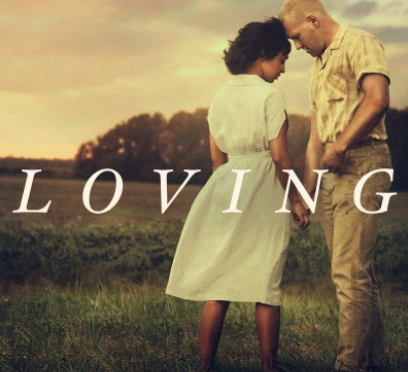As the ominous force known as Donald Trump’s presidency approaches, Jeff Nichols’ Loving comes at a time when we need to be reminded just how far we’ve come as a country of tolerance and how much further we can still go. And yet, though it’s a timely and important historical event to revisit, there are often more valleys than peaks while watching the film. Based on the 1967 Supreme Court case prompted by Richard Loving (Joel Edgerton) and Mildred Jeter Loving (Ruth Negga, kind of an unfortunate last name considering how close it is to the worst possible word), the movie’s title obviously works on a double meaning level, though never quite delivers the action one might have hoped for from a verb.
In truth, what perhaps most detracts from Loving is the lack of chemistry between its co-stars, which is something of a key factor in wanting to remain engaged in the story. Ryan Gosling and Rachel McAdams in The Notebook this is not. Then again, this story isn’t necessarily supposed to be about a hot, passionate romance so much as the catalyst for what caused a momentous landmark occasion.
In spite of the couple’s uniqueness during this era, there is something generic about the presentation of their relationship. We’re never given a backstory for how they came to be together, what incited them specifically to risk it all in starting to cross the taboo line that led to having sex on the reg. No buildup to the opening line, “I’m pregnant.” As Richard lets this information wash over him, it’s almost as though he’s thinking, “Well, who else am I going to have a family with?”
With Mildred’s pregnancy embraced by her lover, he takes her to the field by her house to tell her he plans to build a home for the two of them where they’ll live out their days in Southern contentment. And so, on June 2, 1958, Richard drives Mildred, along with her father to bear witness, to Washington D.C. to be married, knowing full well that the nuptials would never be permitted in the Commonwealth of Virginia. When they return, the authorities are tipped off to Richard’s presence in Mildred’s boudoir, infiltrating the latter’s family home to arrest both of them in the middle of the night.
Ultimately, the couple is punished by the Caroline County court with the comeuppance of being banned from the state for their “crime” for twenty-five years. The narrow-minded wielding of the logic that god made a “sparrow a sparrow” and a “robin a robin” (or maybe it was a different bird, I can’t fully remember) for a reason–to keep them apart–is bandied by the lead cop on the case, who holds a special contempt for Richard’s indiscretion, insisting he should have known better.
Edgerton’s reserved portrayal of Richard lends more of a flaccid effect than an intense one, whereas at least Negga has that whole subtle look and stolen glance shtick down. It’s possible an Australian might not have been an ideal choice to play off Negga’s emotions, but for whatever reason, casting favored him for a quintessentially American role. After Richard and Mildred accept exile in D.C., Loving plods along until the appearance of Nick Kroll as the couple’s ACLU-provided defense lawyer, Bernie Cohen. It is at this point that the tone of the film shifts ever so slightly, more willing to provide occasional laughter to temper its staunch seriousness.
Although the love between Richard and Mildred is a special one–primarily because of how many obstacles they have to overcome to enjoy it–even they fall prey to that fatal flaw of love: domestic drudgery. After having three kids, Mildred seems to cherish the mother-child relationship more overtly than the one she has with Richard. In this respect, it begs the question: is loving at all worth it when it inevitably curdles into something stale? Even the most extraordinary of loves seem to succumb to this fate. It harkens back to Vicki Minor’s (Janeane Garofalo) fear of monogamy in Reality Bites as she explains, “And [my parents]’ve been together, like, years…and they’re like brother and sister at this point. My mother goes to the bathroom with the door open. That’s A. And B… It’s disgusting. I don’t want any part of that. I want first kisses. I want passion…the whole way through.” And even when your love becomes the subject of a Supreme Court debate, it can still grow monotonous. Then again, that’s what Loving is also about: the desire people have to build a shared history with someone else, to live an ordinary life in peace and harmony.
Naturally, Roger Ebert loves this film (one is surprised his review wasn’t called “Loving Loving”). He’s always a sucker for the by-the-book screenplays that know just how to play a symphony on audiences’ heartstrings. And while many film critics are afraid to harshly judge a movie of this nature–so delicate in subject matter, especially during the current racially charged moment in America–Loving is not at the top of Culled Culture’s list this year. A more perfect politically-minded film is Aquarius. Also still holding out hope for Nocturnal Animals and The Love Witch.






















